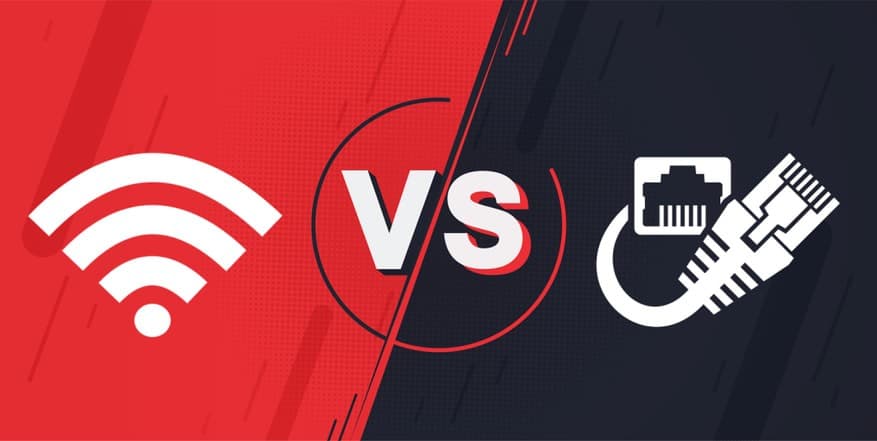Ethernet vs Wi-Fi

How do their affect your internet experience?
When it comes to choosing the best connectivity options for your home internet setup, the question usually boils down to whether you should use a Wi-Fi connection or ethernet connection.
A Wi-Fi connection enables users to access a network and use the internet wirelessly whilst an ethernet connection requires that a user makes use of an ethernet cable connected from their device to the Wi-Fi router in order to access a network and further access the internet. These two methods have their differences in terms of speed, reliability, convenience, and security.
So, let’s look into how differences between the two connection methods affect your overall internet experience.
Speed
There is a large variety of factors that determine the actual speed of a Wi-Fi or ethernet connection. Theoretically, the fastest speeds on an ethernet connection can go as high as 10Gbps and approximately 7Gbps on a Wi-Fi connection.
The reason an ethernet connection guarantees faster speeds is simply because the user is basically hard-wired to the internet, this reduces any delays in data transmission.
If you’re one that prioritizes speed and how fast data flows on your network, an ethernet connection will do best, but if you’ve got more than one user connecting to your network at a time it would be much more practical to use a Wi-Fi connection.
Reliability
When the discussion of reliability comes up, we’re looking at which connectivity option is guaranteed to perform consistently well at all times.
A Wi-Fi connection is more vulnerable to interferences from physical objects that may block the signal as data is being transmitted wirelessly.
An ethernet connection, on the other hand, is generally unaffected by physical objects, however, any physical damage to the ethernet cable such as splits, cracks, crushing, or even bending of the cable will result in a poor internet experience. If you find yourself having to always adjust or “wiggle” your ethernet cable, you’re certainly better off connecting wirelessly, otherwise ensure that your ethernet cable is in good condition.
Convenience
A Wi-Fi connection is without a doubt the more convenient option. Users are able to move around a property freely and are not obligated to spend most of their time on the internet from a desk or workstation. A Wi-Fi connection allows one to choose their surroundings when browsing or working on the internet, giving the user the sense of freedom and flexibility that we all love to have in the comfort of our homes.
Security
An ethernet connection is more secure than Wi-Fi because data on an Ethernet network can only be accessed by physically attaching a device of some sort to the network.
On a Wi-Fi connection, because data is transmitted by means of wireless signals in the air, information can easily be intercepted without any physical actions being done on the network. However, a virtual private network (VPN) can be vital in protecting any data transmitted on your wireless network by hiding information such as your IP address, browsing activity, and personal info from potential threats or hackers. In summary, an ethernet connection is by default the more secure option but with a VPN, a Wi-Fi connection can prove to be equally as secure.
Conclusion
Both ethernet and Wi-Fi connection have their differences, how these differences affect your internet experience is directly proportional to your preferences as a home internet user. What works for your home internet setup may not work for your neighbor’s set up and what works for them may not work for you. We all want to accomplish different things with our internet package but what every home internet user has in common is the desire for an enjoyable internet experience.
